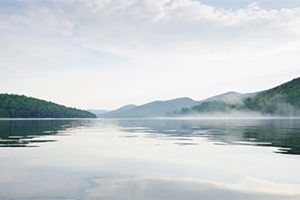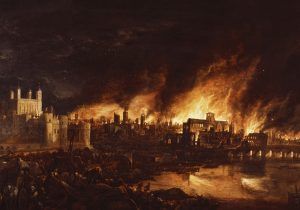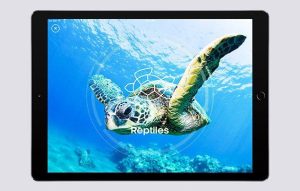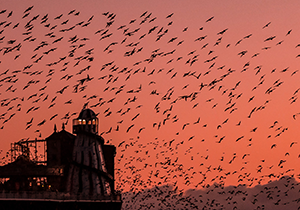
Inca art primary resource
Practise designing Inca-style carvings inspired by the Ancient Inca Empire of South America
This Inca art primary resource gives children an opportunity to practise their own Inca-style carvings, inspired by the Inca Empire of South America.
Pupils will be challenged to follow instructions to make and design their own ‘Inca soap sculptures’, and adapt those instructions for their own creativity in our National Geographic Kids’ Art and History primary resource sheet.
The teaching resource can be used as a printed handout for instruction in class time, or for display on the interactive whiteboard.
Activity: Ask children to research Inca art and sculptures and design their own Inca-style carving of a face on a piece of paper. Pupils should then complete the task on the page, adapting it for their own individual design with different shapes, patterns and embellishments. Children could use their work as a starting point for investigating the meaning and purpose of Ancient Inca art.
N.B. The following information for mapping the resource documents to the school curriculum is specifically tailored to the English National Curriculum and Scottish Curriculum for Excellence. We are currently working to bring specifically tailored curriculum resource links for our other territories; including South Africa, Australia and New Zealand. If you have any queries about our upcoming curriculum resource links, please email: schools@ngkids.co.uk
This Art primary resource assists with covering the following EYFS objectives from the National Curriculum:
In planning and guiding children’s activities, practitioners must reflect on the different ways that children learn and reflect these in their practice. Three characteristics of effective teaching and learning are:
- playing and exploring — children investigate and experience things, and ‘have a go’
- active learning — children concentrate and keep on trying if they encounter difficulties, and enjoy achievements
- creating and thinking critically — children have and develop their own ideas, make links between ideas, and develop strategies for doing things.
National Curriculum Key Stage 1 Art objectives:
Pupils should be taught:
- to use a range of materials creatively to design and make products
- to use drawing, painting and sculpture to develop and share their ideas, experiences and imagination
- to develop a wide range of art and design techniques in using colour, pattern, texture, line, shape, form and space
- about the work of a range of artists, craft makers and designers, describing the differences and similarities between different practices and disciplines, and making links to their own work.
National Curriculum Key Stage 2 Art objectives:
Pupils should be taught:
- to improve their mastery of art and design techniques, including drawing, painting and sculpture with a range of materials [for example, pencil, charcoal, paint, clay]
- about great artists, architects and designers in history.
As a History primary resource, this resource assists with teaching the following Key Stage 2 History objective from the National Curriculum:
- the achievements of the earliest civilizations – an overview of where and when the first civilizations appeared
- A non-European society that provides contrasts with British history
This Art primary resource assists with teaching the following Expressive arts Early level objectives from the Scottish Curriculum for Excellence:
- I have the freedom to discover and choose ways to create images and objects using a variety of materials.
Scottish Curriculum for Excellence First level Expressive arts objectives:
- I have the opportunity to choose and explore a range of media and technologies to create images and objects, discovering their effects and suitability for specific tasks.
- I can create and present work using the visual elements of line, shape, form, colour, tone, pattern and texture.
Scottish Curriculum for Excellence First level Expressive arts objectives:
- I have the opportunity to choose and explore an extended range of media and technologies to create images and objects, comparing and combining them for specific tasks.
- I can create and present work using the visual elements of line, shape, form, colour, tone, pattern and texture.
Scottish Curriculum for Excellence Second level Expressive arts objectives:
- I can create and present work that shows developing skill in using the visual elements and concepts.
Scottish Curriculum for Excellence Third level Expressive arts objectives:
- I can use and combine the visual elements and concepts to convey ideas, thoughts and feelings in expressive and design work.
- I can respond to the work of artists and designers by discussing my thoughts and feelings. I can give and accept constructive comment on my own and others’ work.
Scottish Curriculum for Excellence Fourth level Expressive arts objectives:
- I can use the visual elements and concepts with sensitivity to express qualities and relationships and convey information, thoughts and feelings. I can use my skills and creativity to generate original ideas in my expressive and design work.
- I can analyse art and design techniques, processes and concepts, make informed judgements and express considered opinions on my own and others’ work.
As a History primary resource, this resource assists with teaching the following Social Studies Second level objectives from the Scottish Curriculum for Excellence:
- I can discuss why people and events from a particular time in the past were important, placing them within a historical sequence
- I can compare and contrast a society in the past with my own and contribute to a discussion of the similarities and differences
Download primary resource
More Like

Awesome poems about the water cycle!

The Great Fire of London Facts

A lifetime of Attenborough’s documentaries









LEAVE A COMMENT
THANK YOU
Your comment will be checked and approved shortly.
WELL DONE,
YOUR COMMENT
HAS BEEN ADDED!
COMMENTS
CUSTOMIZE YOUR AVATAR